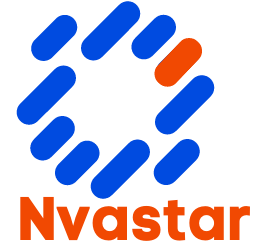Is GitHub Safe?
Security Measures Implemented by GitHub
GitHub prioritizes security to safeguard its users’ data and projects. It employs various measures to ensure a secure environment for collaboration and development. Read about Public vs Private Networks
Encrypted Communication
GitHub uses encryption to secure communication between users’ devices and its servers. This encryption ensures that data transmitted over the network remains confidential and cannot be intercepted by malicious entities.
Two-Factor Authentication
To enhance account security, GitHub offers two-factor authentication (2FA). With 2FA enabled, users are required to provide two forms of identification—a password and a unique authentication code—before gaining access to their accounts.
Security Alerts
GitHub provides security alerts to notify users of potential vulnerabilities in their repositories. These alerts help developers promptly address security issues and prevent potential exploits. Discover about How to Bypass Cloudflare for Web Scraping

User Privacy Protection
GitHub prioritizes user privacy and implements measures to protect personal and sensitive information.
Data Encryption
GitHub encrypts user data stored on its servers to prevent unauthorized access. This encryption ensures that even in the event of a breach, sensitive information remains secure and inaccessible to malicious actors.
Privacy Settings
GitHub allows users to customize their privacy settings to control who can access their repositories and contributions. Users can choose to make their projects public, private, or accessible to select collaborators only.
Open Source Community Collaboration
GitHub fosters collaboration within the open-source community, enabling developers worldwide to contribute to projects and share code openly. The platform’s transparency and accessibility promote innovation and knowledge sharing. Learn about What is a Node in Networking
GitHub’s Transparency
GitHub maintains transparency regarding its security practices and regularly updates users on security-related matters. This transparency builds trust among users and demonstrates GitHub’s commitment to maintaining a secure platform.
Common Concerns About GitHub Safety
Despite its security measures, some concerns persist regarding GitHub’s safety and integrity.
Data Breaches
Instances of data breaches on GitHub have raised concerns about the platform’s vulnerability to cyberattacks. While GitHub takes proactive measures to mitigate security risks, users should remain vigilant and implement additional security measures.
Vulnerabilities and Exploits
As a widely used platform, GitHub is susceptible to vulnerabilities and exploits. Developers must stay informed about security best practices and promptly address any identified vulnerabilities to protect their projects and data.
Account Security
Maintaining strong account security is crucial for safeguarding personal and project-related information on GitHub. Users should regularly update their passwords, enable two-factor authentication, and monitor their accounts for suspicious activity.
Tips for Ensuring Safety on GitHub
To enhance safety and security on GitHub, users can follow these best practices:
Strong Passwords
Create strong, unique passwords for GitHub accounts and avoid using easily guessable passwords.
Regular Security Updates
Stay informed about security updates and patches released by GitHub, and promptly apply them to protect against known vulnerabilities.

Avoiding Suspicious Links
Exercise caution when clicking on links or downloading files from unknown sources, as they may contain malware or phishing attempts.
Conclusion
In conclusion, GitHub is a secure platform for collaboration and development, offering robust security measures, user privacy protection, and transparency. While concerns about safety persist, GitHub’s proactive approach to security and its commitment to transparency instill confidence in users. By following best practices and remaining vigilant, developers can effectively mitigate risks and leverage GitHub’s capabilities for innovative and collaborative projects.
FAQs
- Is GitHub safe for storing sensitive information?
- While GitHub employs encryption and security measures, it’s essential to assess the sensitivity of the information and implement additional security measures if necessary.
- Can GitHub repositories be hacked?
- GitHub repositories can be vulnerable to hacking attempts, but users can mitigate risks by implementing strong security practices and staying informed about potential threats.
- How does GitHub handle security breaches?
- GitHub responds to security breaches promptly, notifying affected users and implementing measures to address the breach and prevent further exploitation.
- Is two-factor authentication necessary for GitHub accounts?
- Enabling two-factor authentication adds an extra layer of security to GitHub accounts and is highly recommended to protect against unauthorized access.
- Does GitHub provide support for security-related issues?
- Yes, GitHub offers support for security-related concerns and provides guidance on best practices for maintaining a secure development environment.
